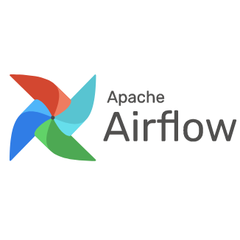
AWS Data Pipeline
AWS Data Pipeline is a robust web service designed to facilitate reliable data processing and movement across various AWS compute and storage services, as well as on-premises sources. It automates the scheduling of data workflows, ensuring seamless access, transformation, and efficient transfer of results to services like Amazon S3 and DynamoDB, while managing dependencies and fault tolerance.
Top AWS Data Pipeline Alternatives
Tarsal
Tarsal offers a cutting-edge ETL data pipeline specifically designed for security teams, enabling effortless data extraction and routing to chosen platforms, such as Data Lakes and SIEMs.
Apache Airflow
Apache Airflow® offers a scalable and modular architecture for orchestrating workflows, employing message queues to manage multiple workers.
Pantomath
Pantomath delivers a powerful observability and traceability solution for data pipelines, autonomously monitoring datasets and jobs across the enterprise ecosystem.
Google Cloud Composer
Google Cloud Composer offers a fully managed workflow orchestration service built on Apache Airflow, enabling users to author, schedule, and monitor complex data pipelines across hybrid and multi-cloud environments.
Dropbase
Dropbase is a prompt-based developer platform that accelerates the creation of web apps and automation software.
Microsoft Graph Data Connect
Microsoft Graph Data Connect serves as a secure, high-throughput solution for organizations to seamlessly copy select Microsoft 365 datasets into their Azure tenant.
definity
It optimizes performance and minimizes costs by pinpointing waste, ensuring pipeline SLAs, and providing deep...
Amazon MWAA
Users can leverage a secure, isolated cloud environment to run scalable ETL processes, automate machine...
Chalk
By integrating deep learning alongside structured data, users can enhance predictive accuracy...
Stripe Data Pipeline
Users can effortlessly centralize payments, subscriptions, and fraud analytics, enhancing financial visibility...
Talend Pipeline Designer
It enables the creation of reusable data pipelines from diverse sources, facilitating seamless integration with...
Datazoom
It enables users to select specific data points, apply filters, and manage data delivery to...
Integrate.io
With over 220 transformations and 60-second CDC replication, it empowers both technical and non-technical users...
Meltano
With an extensive library of over 600 connectors, it allows seamless integration of databases, SaaS...
AWS Data Pipeline Review and Overview
A cloud-computational platform is incomplete without the thousands of metaphorical superhighways of data running through it, each one transferring terabytes of data back and forth repeatedly. A single problem in these links can result in an enormous loss in productivity and, in the worst-case scenario, revenue. Amazon again saves its AWS users with the AWS Data Pipeline service, which sees to the fact that every bulk data transfer operation between the computing platform, the data source, and the storage platform occurs seamlessly.
Developing intricate data pipelines with simplicity
With specific integrated cloud platforms, the task of creating useful and simple data flows can be a chore, but this doesn’t happen with the AWS platform. The reason for this is that the AWS Data Pipeline is incredibly easy to set up, even by non-programmers. It uses a simple, drag, and drop methodology to create data pipelines between different cloud platforms. Additionally, some standard data querying and management functions are pre-coded into the platform in a GUI button-based format for convenience. Apart from this, users can also relish the comfort of several templates for frequently-used pipelines.
A wide range of use-cases ensures that the service is always reliable
The AWS Data Pipeline system ensures that the user can make the most out of all the powerful Amazon Cloud tools at their disposal, and enables several innovative and fruitful integrations as well. It also has some advanced functionalities of its own that bring a level of smartness and control to the process of data flow. Examples of such features include scheduled transfers and dependency linking. Developers may even write complex conditions and logics for the flow of data to take place. It also enables certain advanced functionalities that ultimately serve to smoothen the workflow.
Cost-effectiveness at its finest
AWS-based cloud services are generally cheap in their subscription when compared to what they offer and how much revenue they save, and the Data Pipeline service is no different. When the user analyses its flexibility and scalability, its cause of high ROI becomes visible.
Top AWS Data Pipeline Features
- Reliable data processing
- Scheduled data movement
- Integration with on-premises sources
- Fault tolerance for tasks
- Automatic retries for failures
- Dependency management between tasks
- High availability of workloads
- Support for AWS compute services
- Efficient data transformation capabilities
- Scalable processing for large datasets
- Repeatable workflow creation
- Notifications for task failures
- Secure data transfer options
- Easy integration with AWS services
- Cost-effective pay-as-you-go pricing
- Customizable data processing workflows
- Visual workflow creation interface
- Monitoring and logging capabilities
- Data lineage tracking
- Resource availability management.














